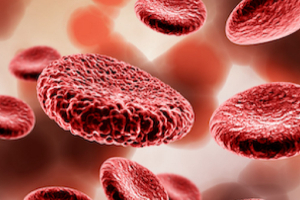 Sometimes, pregnancy allows you to experience conditions you have never had an issue with before. Perhaps you have always been a go-go-goer, and now you require daily naps. Maybe you’ve always been a picky eater, and now you can’t get enough of some of your formerly-dreaded food items. Then there are the medical situations that can arise – such as gestational diabetes or pregnancy anemia.
Sometimes, pregnancy allows you to experience conditions you have never had an issue with before. Perhaps you have always been a go-go-goer, and now you require daily naps. Maybe you’ve always been a picky eater, and now you can’t get enough of some of your formerly-dreaded food items. Then there are the medical situations that can arise – such as gestational diabetes or pregnancy anemia.
The point is, pregnancy can do a number on your body and your well-being without the proper care and treatment.
Learn About Pregnancy Anemia: Causes, Symptoms, and Treatment
Today, we’re going to focus on pregnancy anemia, which is the most common type of anemia in the United States according to the American Society of Hematology. Your body requires as much as 30 percent more blood during your pregnancy – you’re sharing your blood supply with your baby, after all – and this means it needs more iron to produce those extra red blood cells.
Typically, you acquire iron and the other nutrients you need from the foods you eat – although they can also be assimilated with nutritional supplements. Anemia occurs when your iron supplies are inadequate. This is one reason why regular prenatal visits are so important. Your doctor or midwife will observe routine blood tests that indicate whether or not you have a healthy iron supply.
PLEASE NOTE: A surplus of iron can be more dangerous than a deficiency. Never take an iron supplement without checking first with your healthcare provider. Taking too much iron can harm both you and your sweet developing baby.
There are three different types of anemia related to pregnancy:
- Iron-deficiency anemia
- Folate-deficiency anemia
- Vitamin B12 deficiency
Folic acid and Vitamin B12 are related to producing new, healthy red blood cells, so a deficiency in either of those can also lead to anemia.
What are the symptoms of pregnancy-related anemia?
Some of the symptoms related to pregnancy anemia include:
- Fatigue
- Pale skin, lips, and/or nail beds
- Dizziness
- Weakness
- Difficulty concentrating
- A rapid heartbeat
- Shortness of breath
This list of symptoms may sound more like a “Welcome to Pregnancy” anthem for many of you. Indeed, many of the symptoms are also characteristic of pregnancy in general. Still, they are worth mentioning to your doctor, especially if you haven’t yet had your blood drawn for testing or if any of them have developed recently.
How is pregnancy anemia treated?
First, we want to reiterate that the best way to treat anemia is never to develop it in the first place. Make sure you’re consuming more-than-normal amounts of veggies and lean proteins that are higher in iron, such as leafy green vegetables (romaine lettuce, kale, broccoli, greens, etc.), lean meats, eggs, and enriched whole grains. Vitamin C helps to facilitate iron absorption, so it also increases your intake of foods like oranges, strawberries, kiwis, tomatoes, and bell peppers. Also, dairy products like milk and cheese can block iron absorption, so keep your dairy separate from your iron-rich foods.
Prenatal vitamins almost always contain iron, folic acid, and B12. Check with your doctor to see which prenatal supplement she recommends. In some cases, she may write you a prescription for a specialized prenatal vitamin higher in particular nutrients, or she may want you to take a separate iron supplement. Again, never take any nutritional supplement – especially while pregnant – without checking it out with your doctor.
Are you still looking for the best care provider for you and your baby? Contact Women’s Health Associates and schedule a meet-and-greet appointment with our staff of caring professionals.
The post What is Pregnancy Anemia and How to Avoid It appeared first on Women’s Health Associates | Kansas City Women’s Health Providers.
